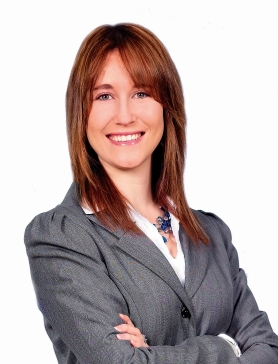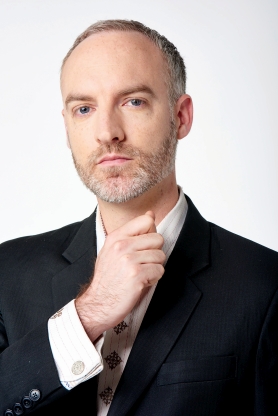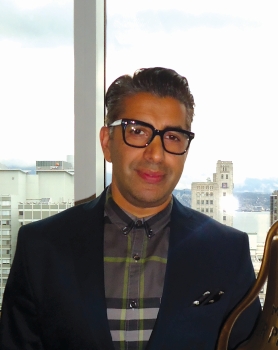 Annik Forristal
Annik ForristalAssociate at McMillan LLP
In grade nine I spent a day with my dad for “Take Your Kid to Work Day.” As we toured the refinery where he worked, with its complex maze of pipelines, tanks and valves, I was fascinated: how did it work and what exactly did my dad, an engineer, do? The answer, he said, was simple. Engineers solve problems. My eyes were opened to the unbelievable impact engineers have in our lives and the incredible variety of problems they solve and I was hooked — I then wanted to be an engineer.
Four years later, I entered the University of Waterloo’s five-year chemical engineering program that incorporated two years of engineering work experience. I had the opportunity to try my hand at a variety of potential career paths in diverse industries, including plastics, pharmaceuticals, mining, and oil and gas. I was impressed by the incredible achievements within these industries and proud to contribute.
As I progressed, however, I became intrigued by the interaction between engineering and law. No matter the industry or nature of my role, the law inevitably impacted me and my colleagues.
We often saw processes revised or tasks that had been tailored to address legal matters such as protecting rights or limiting liability. Additionally, there was often a sense of frustration, given that what “the lawyers” needed felt disconnected from the problem at hand; a tedious diversion from the clear path forward.
Consequently, my focus shifted — I wanted to be a lawyer to help engineers solve problems and accomplish their goals.
Following graduation, I attended law school at the University of Calgary and worked part-time as an engineer for a while. Interestingly, I discovered that engineering and law are not quite as disconnected as I had originally thought; while the processes and tools may be very different, at their heart, both lawyers and engineers are problem-solvers.
Today I practise in areas where I frequently work with engineers and other professional problem-solvers. In this environment, not shying away from complex or technical matters and approaching a challenge from different perspectives has proven invaluable.
 Jason Sacha
Jason SachaAssociate at Ricketts, Harris LLP
I grew up in Morinville, Alta., a community of 5,000 about 30 minutes north of Edmonton. It had one high school, three video stores — and when a Tim Hortons opened, it was a big event. I knew from a young age I wanted to do something involving international business and travel. There were lots of blue-collar jobs around Morinville and, as a kid, business seemed like a Big City activity, very “New York.”
I was always interested in cool new technology and was an early adopter of cell phones — initially a cool product from Finland. When I got the chance to go to Finland as part of my business studies at the University of Alberta, I jumped at it. It was the road less travelled (many of my classmates chose the beaches of Australia) but why zig when you can zag?
I’ve always been a voracious reader and wanted to try my hand at writing. I roomed with a filmmaker and started to work together on a number of film concepts and scripts. From there I started writing then producing my friend’s films and then shooting some of my own. I formed my own film-production company and created my own films as well as working on local films (generally as an assistant director) in and around Edmonton and Calgary.
I used to get a lot of questions from producers, such as: “Can we film here with all these brands shown in the background?” or “Who owns the film when it is done?” or “How do we structure this to raise more money?” Each production was a start-up in its own right and each had a lot of legal needs. I found that element interesting, and graduated from Osgoode Hall with a specialty in IP.
Today, I specialize in supporting early-stage companies. My clients range from technology and digital-services businesses through to production and branding entities, and I use all my earlier experiences to help them narrate their own opportunities through each stage of their journey.
 Roger Tangry
Roger TangryAssociate at Bernard LLP
You could say I grew up in the airline industry; my father was an executive with Air Canada, so I was exposed to aircraft, cargo containers and airport operations throughout my childhood. I spent the first 10 years of my working life in the freight industry specializing in air and ocean logistics, cargo management and other kinds of intermodal operations — essentially helping people and companies get their goods to market.
I joined a family business that experienced rapid growth. We established adjacent business units, set up joint ventures and had a vast agency network with offices on four continents, giving me the opportunity to work on international projects in Asia and the Middle East.
As head of the business-development unit, I was exposed to commercial agreements, contracts involving cargo movement, joint ventures and other legal matters. The mechanisms always fascinated me, especially when disputes arose. I was drawn to the way lawyers think and break down problems. So when the family company was sold in 2008, I had the time and resources to go to law school.
After graduating from the University of Liverpool Law School, I summered at a litigation boutique in Grand Cayman and did a Masters in International Business and Corporate Law at Boston University School of Law. Following an internship with the Bank Information Center, a Washington, DC-based NGO and watchdog of the World Bank, I moved back to Vancouver to reconnect with my roots. I articled at BLG and then accepted an associate position at Bernard LLP.
I feel like my previous work life helped me develop a depth of understanding of the commercial realities facing corporate clients. I bring a strategic and business-minded approach gleaned from real-world commercial experience. I learned how to manage people, budgets, expectations and relationships, and understand the importance of mitigating risk and finding efficient and cost-effective solutions to problems.
Going back to being a student was a challenging transition, but well worth it. Looking back, I realize each step prepared me for the next opportunity: Now it’s about looking ahead.




